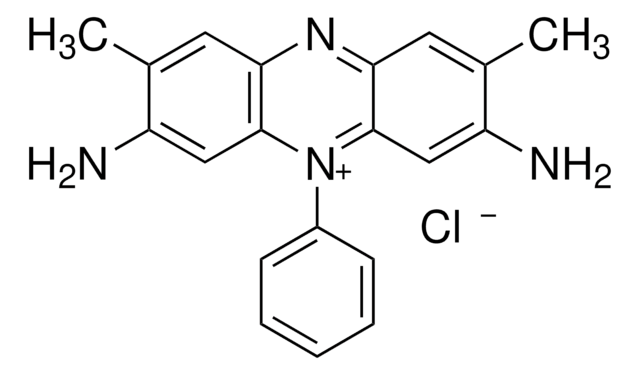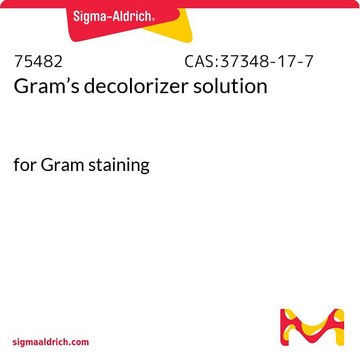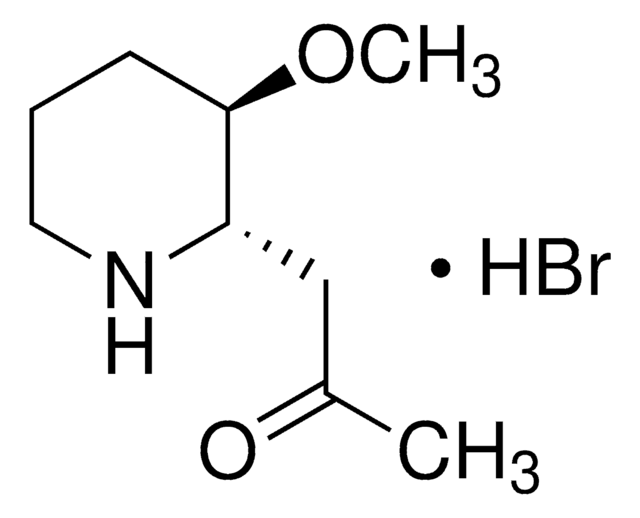94448
Gram′s crystal violet solution
for microscopy
Sinónimos:
Basic violet 3; gentian violet; hexamethyl pararosaniline; methyl violet 10B
About This Item
Productos recomendados
grade
for microscopy
Quality Level
product line
BioChemika
form
liquid
shelf life
limited shelf life, expiry date on the label
technique(s)
microbe id | staining: suitable
color
purple to very dark purple
density
0.981 g/mL at 20 °C
εmax
33.8 at 585-595 nm in water
suitability
suitable for microscopy
suitable for microscopy
antibiotic activity spectrum
Gram-negative bacteria
Gram-positive bacteria
application(s)
diagnostic assay manufacturing
hematology
histology
storage temp.
room temp
General description
Application
- Crystal violet is routinely used for Gram staining and its variants, staining amyloid, bacterial components, and vascular plant tissues.
- It is used in polychrome staining of epoxy resin sections, viability staining of cultured neurons, and confocal optical sectioning to analyze meiotic structures.
- It is also employed in the acridine orange-crystal violet staining of intracellular bacteria, microsporidian spores, and cytological smears.
Biochem/physiol Actions
Principle
signalword
Warning
hcodes
Hazard Classifications
Aquatic Chronic 3 - Carc. 2 - Eye Irrit. 2 - Flam. Liq. 3
Storage Class
3 - Flammable liquids
wgk_germany
WGK 2
flash_point_f
93.2 °F
flash_point_c
34 °C
ppe
Eyeshields, Faceshields, Gloves, type ABEK (EN14387) respirator filter
Elija entre una de las versiones más recientes:
¿Ya tiene este producto?
Encuentre la documentación para los productos que ha comprado recientemente en la Biblioteca de documentos.
Artículos
Clostridia are relatively large, gram-positive, rod-shaped bacteria that can undergo only anaerobic metabolism.
An article regarding the Role of Clostridium perfringens and their detection, identification, and differentiation from Sigma-Aldrich.com
On the Trail of Campylobacter
For microbiologists the most fundamental stain was developed in 1884 by the Danish bacteriologist Hans Christian Gram.
Nuestro equipo de científicos tiene experiencia en todas las áreas de investigación: Ciencias de la vida, Ciencia de los materiales, Síntesis química, Cromatografía, Analítica y muchas otras.
Póngase en contacto con el Servicio técnico








